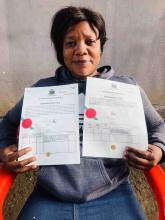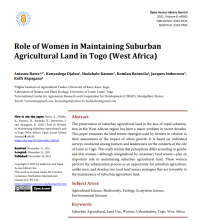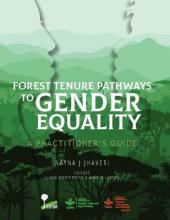Land Library
Welcome to the Land Portal Library. Explore our vast collection of open-access resources (over 74,000) including reports, journal articles, research papers, peer-reviewed publications, legal documents, videos and much more.
/ library resources
Showing items 1 through 9 of 65.Depuis plus de cinq ans, le projet WOLTS (Women’s Land Tenure Security) étudie le croisement entre les relations de genre et de droits fonciers dans les communautés pastorales affectées par l’exploitation minière en Mongolie et en Tanzanie.
Эмэгтэйчүүдийн Газар Эдэлбэрийн Эрхийн Баталгаат Байдал төсөл нь (ЭГЭЭББ) сүүлийн таван жилийн хугацаанд Монгол, Танзани улсуудад уул уурхайн нөлөөнд өртсөн нүүдэлч малчин иргэдийн жендер болон газрын харилцааны хамаарлыг судаллаа. Тус ажлын үндсэн зорилго нь орон нутгийн иргэдт
Kwa zaidi ya miaka mitano, Mradi wa Usalama wa Umiliki wa Ardhi kwa Wanawake (WOLTS) umekuwa ukichunguza uhusiano wa kijinsia na ardhi katika jamii za wafugaji zilizoathiriwa na uchimbaji wa madini Mongolia na Tanzania.
Key Messages and Recommendations
• Combating desertification and land degradation while mitigating the effects of drought can secure long-term socio-economic benefits for people living in drylands and reduce their vulnerability to climate change.
This one-pager provides details on the LAND-at-scale project in Burundi. This project is implemented by ZOA, VNG International and MiPAREC, and financed by the Ministry of Foreign Affairs via the Netherlands Enterprise & Development Agency.
This one-pager provides details on the LAND-at-scale project in Burkina Faso.
This article highlights the gender inequality that currently exists in land ownership in Zambia. Zambia currently has two land tenure systems, both of which are relic of the colonial era.
The preservation of suburban agricultural land in the face of rapid urbanization in the West African region has been a major problem in recent decades. This paper examines the land tenure strategies used by farmers in relation to their assessments of the impact of urban growth.
This practitioner’s guide explains how to promote gender-responsive forest tenure reform in community-based forest regimes. It is aimed at those taking up this challenge in developing countries.







